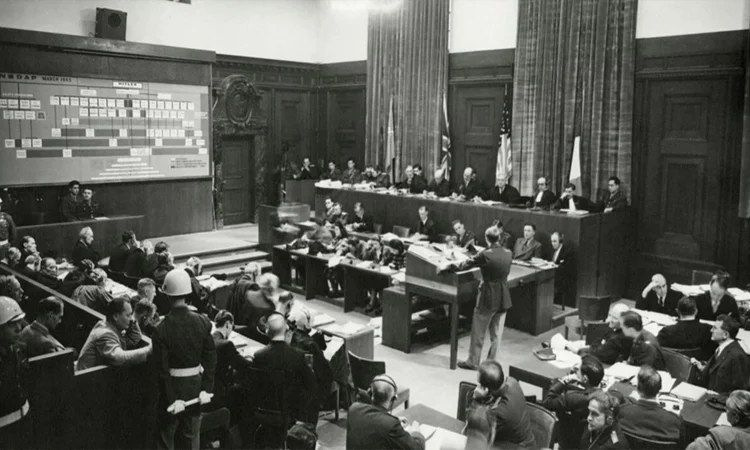News Flash
News Flash

by Didarul Alam and SM Ashikuzzaman
Dhaka, April 12, 2025 (BSS) - Trials of crimes against humanity committed in different countries of the world have been examples of justice in ages.
Crimes against humanity are usually committed when a state or organized group systematically commits genocide, rape, torture, forced displacement or enslavement against a population. The trials of crimes against humanity began after World War II.
Nuremberg Trials: The Nuremberg International Military Tribunal was formed in 1945 to try Nazi Party leaders. In this trial, for the first time in history, state leaders were brought under international law for crimes against humanity. Many Nazi leaders were convicted of genocide, torture, and war crimes, which later laid the foundation for the process of trials for crimes against humanity.
Yugoslavian genocide trials: The ethnic conflict in Yugoslavia in the 1990s resulted in widespread killings and rapes. The United Nations established the International Criminal Tribunal for the former Yugoslavia (ICTY) in 1993 that dealt with war crimes that took place during the conflicts in the Balkans in the 1990s.
This court tried many military and political leaders, including former Yugoslav President Serban Milosevic. A total of 161 individuals were indicted by the tribunal, of whom 93 were convicted. 18 were acquitted, and 50 remained unsolved for various reasons (such as death, transfer to another court, etc.). The ICTY set a new precedent in international criminal justice.
Rwandan Genocide Trial: In 1994, the conflict between the Hutu and Tutsi communities in Rwanda killed about 800,000 people in just 100 days. The United Nations established the International Criminal Tribunal for Rwanda (ICTR) in 1995. The court issued historic verdicts against high-ranking political leaders, military officers, and media workers in Rwanda. A total of 93 people were indicted in this tribunal. Of these, 61 were convicted, 14 were acquitted, and 6 are fugitives. The cases against the rest were not resolved for various reasons (such as death, transfer to another court, etc.).
Khmer Rouge atrocities trial: During the Khmer Rouge regime in Cambodia from 1975-79, about two million people lost their lives. The Extraordinary Chambers in the Court of Cambodia (ECCC) was established in 2006 to try this genocide. Although the trial process was lengthy, it was possible to bring the perpetrators to justice.
The Trial of Hissène Habré:The Extraordinary African Chambers were established in Senegal in 2012 by an agreement between Senegal and the African Union to try the dictatorial ruler of the African state of Chad, Hissene Habre, for crimes against humanity. The trial of Hissene Habre began in 2015 and the court found him guilty in April 2017.
International Criminal Court: The International Criminal Court (ICC), established in 2002 under the Rome Statute, the world's first permanent international criminal court.
This international court is investigating and trying cases of crimes against humanity, genocide and war crimes in many countries, including Sudan, Congo, Kenya, Libya and Afghanistan.
So far, a total of 69 people have been indicted in this court. Of these, 10 have been convicted, 4 have been acquitted and 20 have not been resolved for various reasons (death, transfer to another court, dismissal of charges, etc.).
In addition, currently, 4 people are on trial at the ICC and 1 person has started his trial in the pre-trial chamber. 30 accused are absconding.
International Crimes Tribunal of Bangladesh: The trial process for crimes against humanity committed during the Liberation War in Bangladesh in 1971 began in 2010. Several people have already been tried and sentenced under this tribunal.
Most recently, the trial of crimes against humanity committed during the student-people mass uprising in July-August 2024 has begun in this court. As of April 10, a total of 339 complaints have been filed, including crimes against humanity committed in July-August. Of which 39 are under investigation (according to the complaint register). In light of the initial truth of the investigation, 22 miss cases were registered against 141 accused. Of these, 54 have been arrested and 87 are absconding.